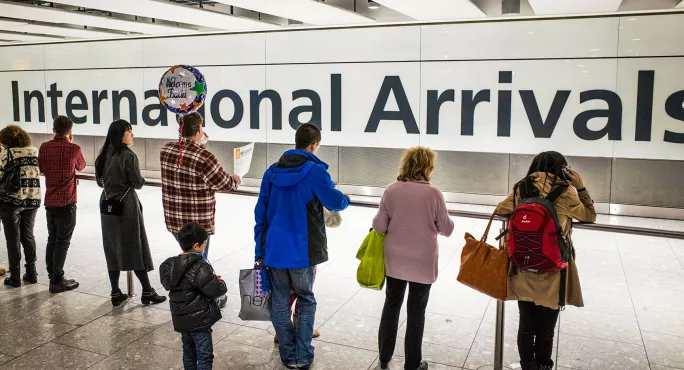Leaders ‘queasy’ about relying on international recruitment

The head of a school leaders’ union has said that the government’s increased focus on targeting international teachers to tackle the country’s recruitment problems makes him feel “queasy”.
Geoff Barton, general secretary of the Association of School and College Leaders (ASCL), said that recruiting teachers from countries that need them doesn’t “morally...feel like the right thing for us to be doing”.
Mr Barton was responding to a question from Tes about the rise of international candidates applying to initial teacher training (ITT) providers and the government’s focus on this.
Tes revealed last year that the government is looking at how it could boost schools’ international recruitment to plug teacher gaps.
ASCL held a press conference this morning at the start of the union’s annual conference in Liverpool.
- Exclusive: DfE workforce strategy delayed amid ‘uncertainty’
- Background: 300% rise in teacher training applicants from overseas
- Exclusive: DfE mulls boost to international recruitment
Asked by Tes how ASCL feels about the revelation of the government’s strategy and the rise in international applicants, Mr Barton said: “We feel queasy about it.”
“We feel queasy about it, partly because we should be able to generate our own teachers as much as possible.”
Mr Barton added that while the union wants to see a “diverse workforce”, “we can have [that] with people who have come from the UK”.
Secondary ITT target missed
This year, the government missed its recruitment target for secondary teacher trainees by half, continuing a broader trend of missed teacher workforce targets.
In November last year, government figures revealed that the number of international candidates applying to ITT providers had rocketed by more than 300 per cent year-on-year.
Also last year, a former Department for Education senior policy adviser predicted that teaching will become a “visa profession”, similar to healthcare.
The ASCL general secretary, who is set to step down next month, said that “countries which also particularly need their teachers are essentially becoming people who are sending them away”.
“I just think that morally that doesn’t feel like the right thing for us to be doing, so we have to do something to grow our own teachers better,” Mr Barton added.
International teacher recruitment
ASCL’s president John Camp, who was also speaking at the ASCL press conference, said that we will have to “wait to see” if this is a “long-term solution”.
Mr Barton said that improving teacher retention would help to sort out the challenges the country faces in teacher recruitment.
He also pointed to the current teacher pension system in Singapore, which he described as “an incentive scheme whereby you’re nudging people to stay longer in the profession”.
Teacher pay rise 2024-25
The union leaders were also asked about teacher pay for 2024-25 after the government last month wrote to the School Teachers’ Review Body indicating that pay rises should be lower than the past two years and return to “a more sustainable level”.
Last year, the government accepted the pay body’s recommendation that teachers receive a 6.5 per cent pay rise from September 2023. The deal came after a long-running dispute over pay and months of strike action by teachers.
In 2022-23, experienced teachers received a 5 per cent pay rise.
Mr Barton said that “warm words to the profession will not be enough” and there “will have to be an increase in pay”.
He said: “If we’re going to want them to have the moral purpose of being in education, pay has to be part of that”.
And added that, since the pandemic, teaching has not been able to compete with the flexibilities that other professions can offer in allowing people to work from home.
A Department for Education spokesperson said that the department is “focused on striking the right balance between acting decisively to tackle net migration, which we are clear is far too high, and retaining and developing highly skilled teachers”.
“Our recruitment and retention strategy will always be focussed domestically.”
For the latest education news and analysis delivered directly to your inbox every weekday morning, sign up to the Tes Daily newsletter
You need a Tes subscription to read this article
Subscribe now to read this article and get other subscriber-only content:
- Unlimited access to all Tes magazine content
- Exclusive subscriber-only stories
- Award-winning email newsletters
Already a subscriber? Log in
You need a subscription to read this article
Subscribe now to read this article and get other subscriber-only content, including:
- Unlimited access to all Tes magazine content
- Exclusive subscriber-only stories
- Award-winning email newsletters
topics in this article



